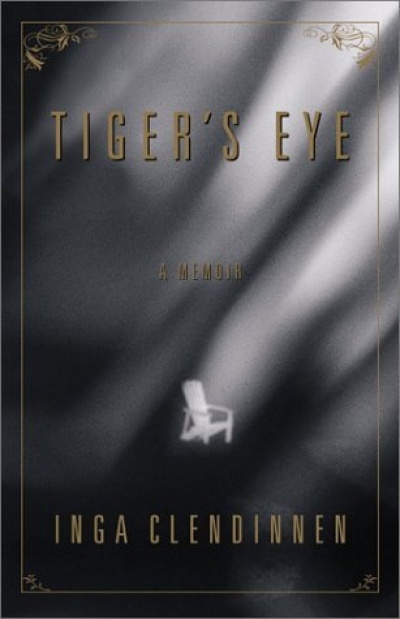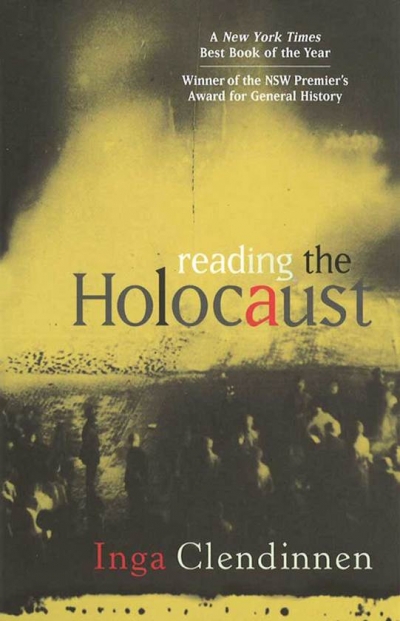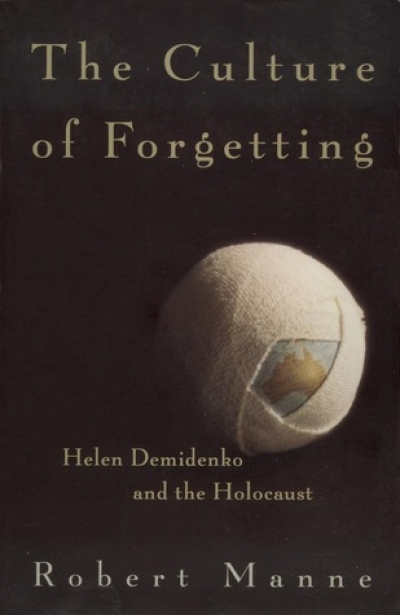Inga Clendinnen
ABR goes to London
Hot on the heels of our inaugural ABR Forum in Canberra on March 28, when a capacity audience attended the session on life-writing at the National Library, ABR will host its first event in London on Tuesday, June 8. Peter Rose and Morag Fraser will present an evening of readings and ideas, with special appearances by Clive James and Peter Porter. We’re delighted to be able to present this special event in association with the Menzies Centre for Australian Studies, Kings College London. The event will run from 6 to 8 p.m. Bookings are essential: please direct them to This email address is being protected from spambots. You need JavaScript enabled to view it.. ABR has many subscribers and supporters in the UK; we look forward to meeting them – and to reaching new ones.
... (read more)About a decade ago, I picked up a book because I liked the cover: bleak street, stark buildings, empty sky, a robed man, his back turned, in the distance; in the foreground, a woman in a burka looking to the left at something we can’t see. When the blurb promised me ‘a Middle Eastern Turn of the Screw, with an insidious power to grip’, I bought it. It gripped. In fact, it scared the living bejesus out of me. That was my introduction to Hilary Mantel’s writings. Since then, I have read nearly everything she has published.
Eight Months on Ghazzah Street (1988) is about a sensible young couple who, after years of humanitarian work in Africa, decide to go to Saudi Arabia to repair their fortunes. The husband will work on a seductively extravagant building project; the wife will read, write and relax in their pleasant, if mildly claustrophobic, apartment. Then small things begin to go wrong.
... (read more)Dear Editor,
Defending Inga Clendinnen against my criticisms (ABR, July 2001), John Clendinnen attributes to her a controversial view about the nature of moral judgment. I don’t hold it and, if I were to judge solely by her practice, I would be surprised if she does. Be that as it may: I’ll try to put my points by keeping philosophical assumptions down as much as possible.
The Holocaust is a subject which numbs the mind and petrifies the soul. This is the point at which Inga Clendinnen starts her remarkable set of essays about it. The Holocaust is a Gorgon and the only way to destroy it, Perseus-like, is to hold it’s image on the screen of the shield and stare back. The historian of The Aztecs, this remarkable woman who has always attended to the inflections of human pain, says at the outset that extreme suffering should be paid attention. She has lived in interesting times without partaking of the horror and this is her amends. This remarkable exercise in metahistory, this sustained meditation about the nature of historiography – an essay in which criticism and representation keep coming together and breaking apart – began with Clendinnen’s sense of the inadequacy of her own response to the Demidenko controversy and it ends, not inappropriately, with a discussion of the relative claims of literature and historical writing in the face of the Holocaust Medusa.
... (read more)The Culture of Forgetting: Helen Demidenko and the Holocaust by Robert Manne
The Death of William Gooch: A history’s anthropology by Greg Dening
Dear Editor,
Dr Jenna Mead claims, among other things in her most recent attempt to discredit The First Stone, that I have ‘invented dialogue’ and written ‘hypothetical meetings with imaginary characters’. All the conversations and encounters in the book are documented in detailed, scrupulous notes. This includes my account of a telephone conversation between Dr Mead and me, which she would perhaps prefer to think of as a figment of my ‘merciless imagination. If only Dr Mead were an imaginary character – but it would strain the ingenuity of a better writer than I am, to have dreamt her up.
Helen Garner, Elizabeth Bay NSW
... (read more)






